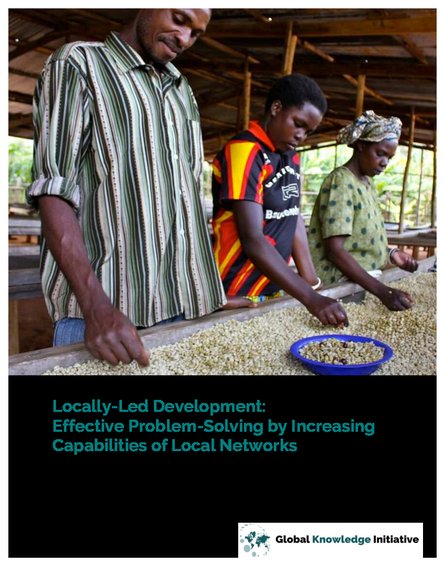
At the Global Knowledge Initiative (GKI), we believe many of the world’s most pressing challenges (climate change, food security, public health, education, etc.) are complex and require the engagement of individuals with diverse strengths, values, resources, and interests. We believe that addressing these challenges requires a networked approach to problem solving. We have dedicated seven years to studying and supporting networks as agents of change. With partners ranging from universities, to agricultural cooperatives, to small businesses, we use human centered design approaches to guide local communities to new solutions.
Take the challenge of post-harvest food loss in Africa as an example. GKI’s Social Innovation Lab with The Rockefeller Foundation brought together over 120 stakeholders from across Africa to understand the state of post-harvest food loss and clarify the diversity of innovative local approaches being used to tackle it across the continent. This process elicited 10 “big wins” that unleashed a $130 million Rockefeller Foundation initiative to reduce post-harvest loss by 50% in key value chains. This initiative, called Yieldwise, will scale the innovations and networks that GKI’s Social Innovation Lab organized. Today, within Yieldwise, GKI is equipping local problem-solvers with tools and processes for collective action and improved innovation decision-making sufficient to make the scaling goals achievable.
In this concept note, we provide a short overview of network-based problem solving and propose a set of activities that we believe succeed in bringing together local communities into strong problem solving networks. We specifically hope to start a conversation with other innovative development organizations about these novel approaches to local network development and strengthening.
